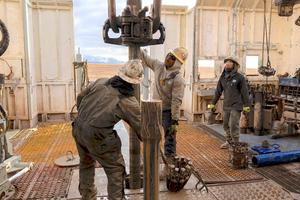A wildfire moves closer to neighborhoods in Santa Clarita, California in 2007. Jeff Turner/Flickr
Insurance is getting harder for some U.S. homeowners to obtain as a result of the impacts of climate change, according to reporting from The Huffington Post and Marketplace. Many insurance companies are choosing not to renew homeowner policies in areas with increased risks of wildfires, sea level rise, or other natural disasters, or are significantly raising premiums.
“The insurance industry’s ability to assess the prospective risks a property faces has improved dramatically,” Michael Barry, head of media and public affairs for the Insurance Information Institute, told The Huffington Post.
According to a 2019 survey of insurance companies by the Deloitte Center for Financial Services, more than half of insurance regulators said “that climate change was likely to have a high impact or an extremely high impact on coverage availability and underwriting assumptions.”
From 2017 to 2018, the number of homeowner policies not renewed by insurance companies jumped 6 percent in areas of California with a high risk of wildfire. In areas where fires occurred, nonrenewals increased 10 percent from 2015 to 2017. Similar upticks have occurred in Florida, Louisiana, Mississippi, and Texas, areas hard hit by hurricanes and flooding. As a result, many homeowners are turning to bare-bone plans, such as the California Fair Access to Insurance Requirements Plan, which can cost double or triple normal insurance policies.
“Affordability of home insurance in the face of climate change has become a huge issue in many states,” Amy Bach, executive director of the nonprofit United Policyholders, recently told Minnesota Public Radio’s Marketplace. “Home insurance now is costing more in areas that are vulnerable to climate change, is harder to find, and is worth less.”



